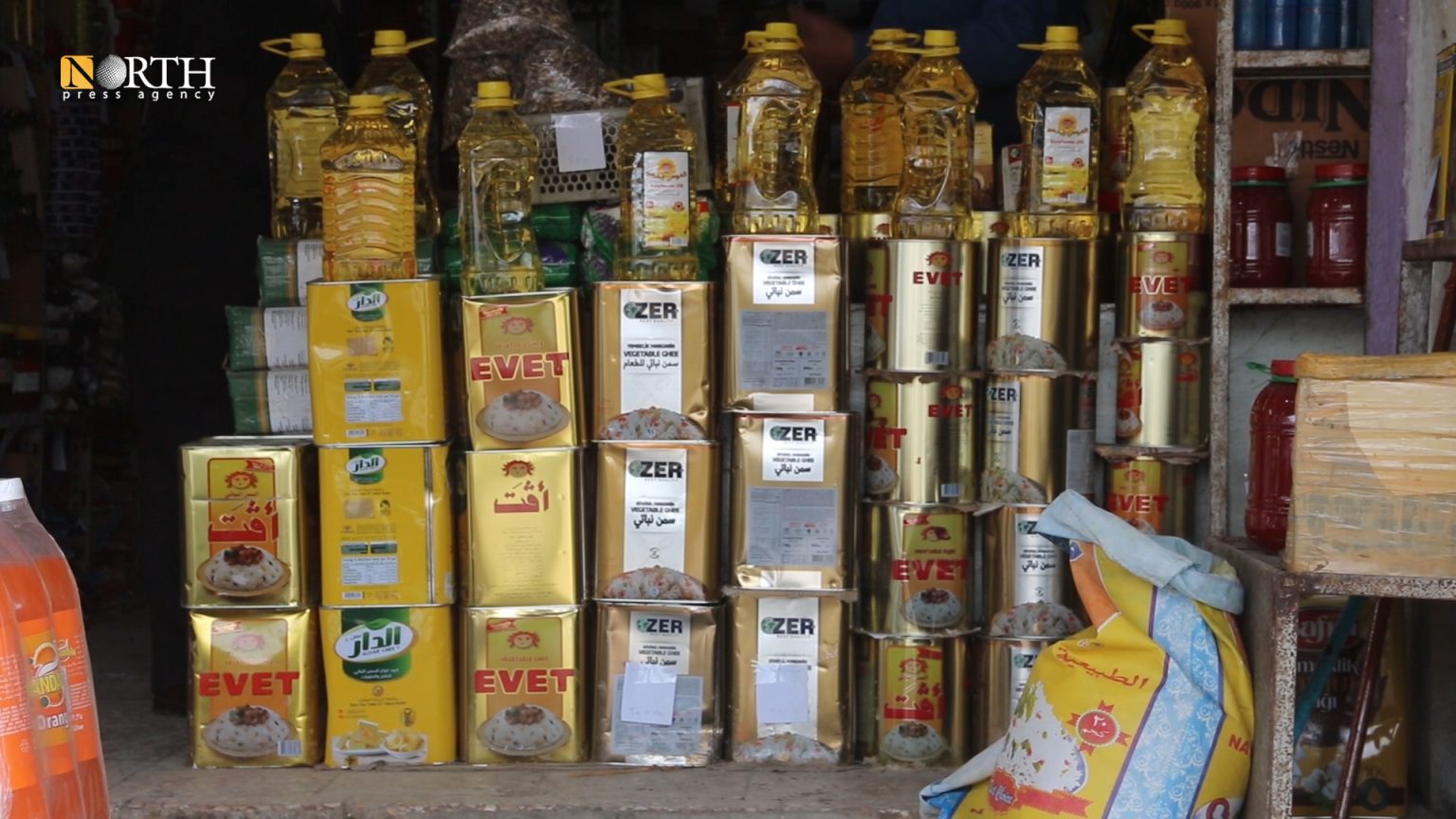DERIK, Syria (North Press) – Residents of Derik, north Syria, expressed their resentment of the continued increase of food prices and goods and the decrease in their purchasing power, in light of the suspension of the supply teams affiliated with the Economy Committee.
Suspended rounds
Media Officer at the Economic Committee in Derik, Sozdar Abdullah, told North Press that “supply teams have suspended their rounds to monitor violations inside markets, as the dollar exchange rate is unstable.”
In February, supply teams recorded 30 violations regarding high prices against merchants, “but the statistics this month have not been issued yet due to the suspension of rounds,” according to Abdullah.
Despite the statements by US officials that the Caesar Act, a series of sanctions against the Syrian regime which came into effect in June 2020, will not target civilians in northeast Syria, its repercussions became evident on residents just months after its implementation.
Qumriya Muhammad, a resident of Kardmiya village in the northern countryside of Derik, said she can no longer buy what she needs, “as the prices of all materials have doubled, with no exceptions; we sometimes return from markets without buying anything.”
She explained that salesmen and traders raise the prices whenever the dollar exchange increases, and that “the prices should be stable so that people with limited incomes can purchase their needs.”
Despite the slight improvement in the exchange rate of the Syrian pound (SYP) against the dollar, which was recorded at 4,040 SYP per dollar on Wednesday, the prices remain unchanged, according to local residents.
Insufficient salaries
Residents of Derik, as well as other cities in northeastern Syria, are finding it difficult to purchase basic necessities in light of the low value of salaries due to the collapse of the value of the Syrian pound.
Derik resident Newroz Farman said that an employee’s salary can only cover the price of two oil tins. “My family consists of ten members and [we] can hardly manage our living.”
Earlier this month, an official in the Autonomous Administration in North and East Syria (AANES) told North Press that the AANES will raise the salaries of its employees by about 30%.
The increase will start from April based on AANES’s plan, according to the official.
In May 2020, the AANES approved an increase of the salaries of all its employees by 150%, which adds to the monthly lump sum wage for workers in its institutions.
Goods in dollars
Salesman Luqman Abdullah said that they buy goods in dollars and then sell them in Syrian currency. “We lose sometimes and benefit other times, depending on the improvement in the exchange rate of the local currency.”
He pointed out that some salesmen keep pace with the dollar exchange rate every hour and price their goods accordingly, while others keep the selling price of the materials according to the old price.
However, salesman Muhammad Amin told North Press that vegetables are also witnessing an increase in their price, even though they are buying them in Syrian pounds, due to the high price of fuel, transportation, and packaging.
During the past two days, the price of one kilogram of tomatoes reached 1,300 SYP, while a kilogram of green peppers was sold for 3,500 SYP and the price of a kilogram of cucumbers reached 2,000 SYP.
The price of a kilogram of potatoes rose to 800 SYP, a kilogram of apples to 2,200 SYP, and a kilogram of oranges were for 2,000 SYP, according to Amin.
The wages of shipments carrying vegetables from Latakia or Qamishli have also doubled, “because car oil, tires, and maintenance are now in dollars.”
He believes that the exchange rates control the market. “When the dollar exchange rate increases, the worker demands a higher wage and the demand for purchases is greatly affected.”

